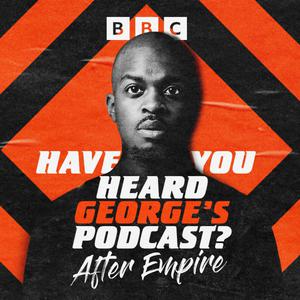
Have You Heard George's Podcast?
BBC Sounds
The award-winning and critically-acclaimed podcast from George the Poet delivers a fresh take on inner city life through a mix of storytelling, music and fiction.
- 44 minutes 10 secondsSpecial: This Cultural Life
George talks to John Wilson about some of his most formative cultural influences including the grammar school that taught him the essay-writing skills he still puts to use when making his podcast. He reveals how Tupac Shakur’s 1998 song Changes ignited his interest in hip hop, and discusses the impact of rap and grime on his own verse. He also remembers how his local community radio station gave him his first break and encouraged the development as a performer.
Producer: Edwina Pitman
12 April 2024, 5:00 am - 26 minutes 8 seconds38. Once Upon a Time in Kampala
In Uganda’s capital city, a young cab driver forms an unlikely bond with a sex worker during the crippling lockdown of 2021. They are both forced to make tough decisions.
Written by George the Poet Produced by Benbrick & George the Poet Original Music and Sound Design by Benbrick.
22 December 2023, 6:00 am - 40 minutes 36 seconds37. Back to Common Ground
George responds to audience questions taken from Common Ground, the platform he co-created in Chapter 3. Listeners discuss everything from art to race using prompts from previous episodes, reaffirming the importance of the artist/audience relationship.
15 December 2023, 6:00 am - 26 minutes 11 seconds36. Jamaican DemAhCrazy Pt. 2
Shaken by the passing of his grandmother, George reflects on the post-colonial struggles of her generation. 1970s Jamaica provides an early case study of the weaponised debt that went on to re-colonise much of the global South. A look back on previous episodes illuminates patterns of exploitation and extraction across African/Western relations. This is the global context that frames the questionable role of the International Monetary Fund in the perpetuation of poverty. George is reminded by his grandmother’s legacy that fighting for justice is always an option. Written by George the Poet Produced by Benbrick & George the Poet With an original score composed by Benbrick and recorded by the BBC Concert Orchestra.
1 December 2023, 6:00 am - 27 minutes 14 seconds35. Jamaican DemAhCrazy Pt. 1
When keeping it real goes…wrong? For a moment in the seventies, Jamaican democracy produced an ambitious plan to end inequality between countries. But when the island’s socialist leader, Michael Manley, flew too close to the sun, he got burnt. What was the New International Economic Order? Why did it rattle Margaret Thatcher and Ronald Reagan so much? On this fast-paced tour of Jamaican history, George looks back at the rise and fall of the Third World’s biggest political project.
Written by George the Poet Produced by Benbrick and George the Poet Original score composed by Benbrick and recorded by the BBC Concert Orchestra
17 November 2023, 6:00 am - 27 minutes 3 seconds34. Francophone Pt. 2
When is a breakup not a breakup? When your ex controls every aspect of your life. After walking through the freedom struggles of Ghana and the Congo in previous episodes, George turns his attention towards the “former” French colonies of West and Central Africa. What happens when freedom is gifted conditionally, not won through revolution? Is all independence created equal?
Written by George the Poet Produced by Benbrick and George the Poet Original Score by Benbrick recorded by the BBC Concert Orchestra Sound Design by Benbrick
10 November 2023, 6:00 am - 21 minutes 36 seconds33: Francophone Pt. 1
The power of Western languages over African economies is undeniable, and nowhere is this more obvious than in Black music. Despite "Francophone” meaning French-speaking, across Africa, it signifies so much more. George looks at the power dynamics between the English-speaking world, the French-speaking world and the Africans forced to navigate both. How did these languages become so important? And what do they reveal about the legacy of colonialism? Written by George the Poet Produced by Benbrick & George the Poet Original score composed by Benbrick and performed by the BBC Concert Orchestra
27 October 2023, 5:00 am - 24 minutes 26 seconds32. Drama in Ghana Pt. 2
After achieving independence, Ghana gave support to freedom fighters across Africa. What went wrong?
Written by George the Poet. Produced by Benbrick and George the Poet. Original score by Benbrick and recorded by the BBC Concert Orchestra. Sound Design by Benbrick.
20 October 2023, 5:00 am - 26 minutes 3 seconds31. Lumumba Pt. 2
With enemies lurking in every corner, Patrice Lumumba is trapped in his own home. As the first democratically elected prime minister of the Congo, he planned to use the country’s natural wealth to improve the lives of its people, but secret actions by the US and Belgian governments stopped that from happening. These actions give a small indication of how far empires will go to hold onto power.
Written by George the Poet Produced by Benbrick and George the poet Original Score by Benbrick, recorded by the BBC Concert Orchestra Sound Design by Benbrick.
13 October 2023, 5:00 am - 27 minutes 19 seconds30. Lumumba Pt. 1
Before Nigeria took over the African music scene, the Democratic Republic of Congo had us in a chokehold. But just like its minerals, the country’s music has yet to produce an industry that eases the economic suffering of its people, despite decades of supply and demand. Why? George goes to the genesis of the DRC’s economic reality by exploring the rise of Patrice Lumumba, Congo’s first prime minister.
Written by George The Poet Produced by Benbrick and George The Poet Original music by Benbrick, performed by the BBC Concert Orchestra. Sound Design by Benbrick.
6 October 2023, 5:00 am - 23 minutes 35 seconds29. Drama in Ghana Pt. 1
Too many people don’t know that Ghana was the first African country to break free from colonial rule. Why does that matter? How could it not? Control of Africa’s resources keeps the rich world rich. What would happen if Ghana’s example set off an anti-colonial cascade across the continent? George revisits the country’s freedom struggle through the rise of Kwame Nkrumah, Ghana’s first president.
Written by George the Poet. Produced by Benbrick and George the Poet. Original music by Benbrick, performed by the BBC Concert Orchestra. Sound Design by Benbrick.
29 September 2023, 5:00 am - More Episodes? Get the App
Your feedback is valuable to us. Should you encounter any bugs, glitches, lack of functionality or other problems, please email us on [email protected] or join Moon.FM Telegram Group where you can talk directly to the dev team who are happy to answer any queries.
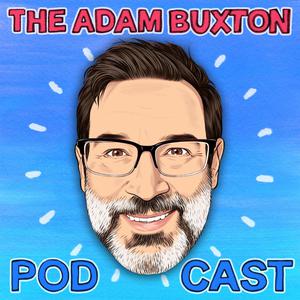 THE ADAM BUXTON PODCAST
THE ADAM BUXTON PODCAST
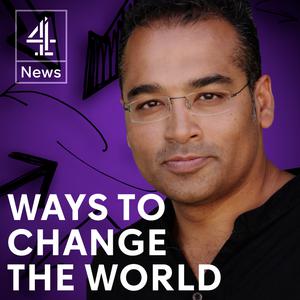 Ways to Change the World with Krishnan Guru-Murthy
Ways to Change the World with Krishnan Guru-Murthy
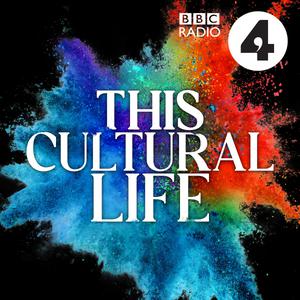 This Cultural Life
This Cultural Life
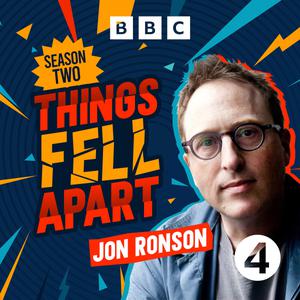 Things Fell Apart
Things Fell Apart
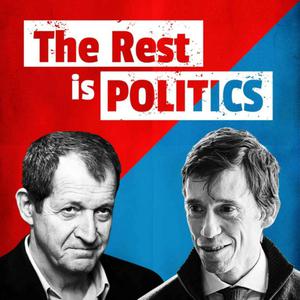 The Rest Is Politics
The Rest Is Politics
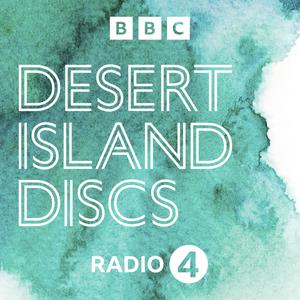 Desert Island Discs
Desert Island Discs